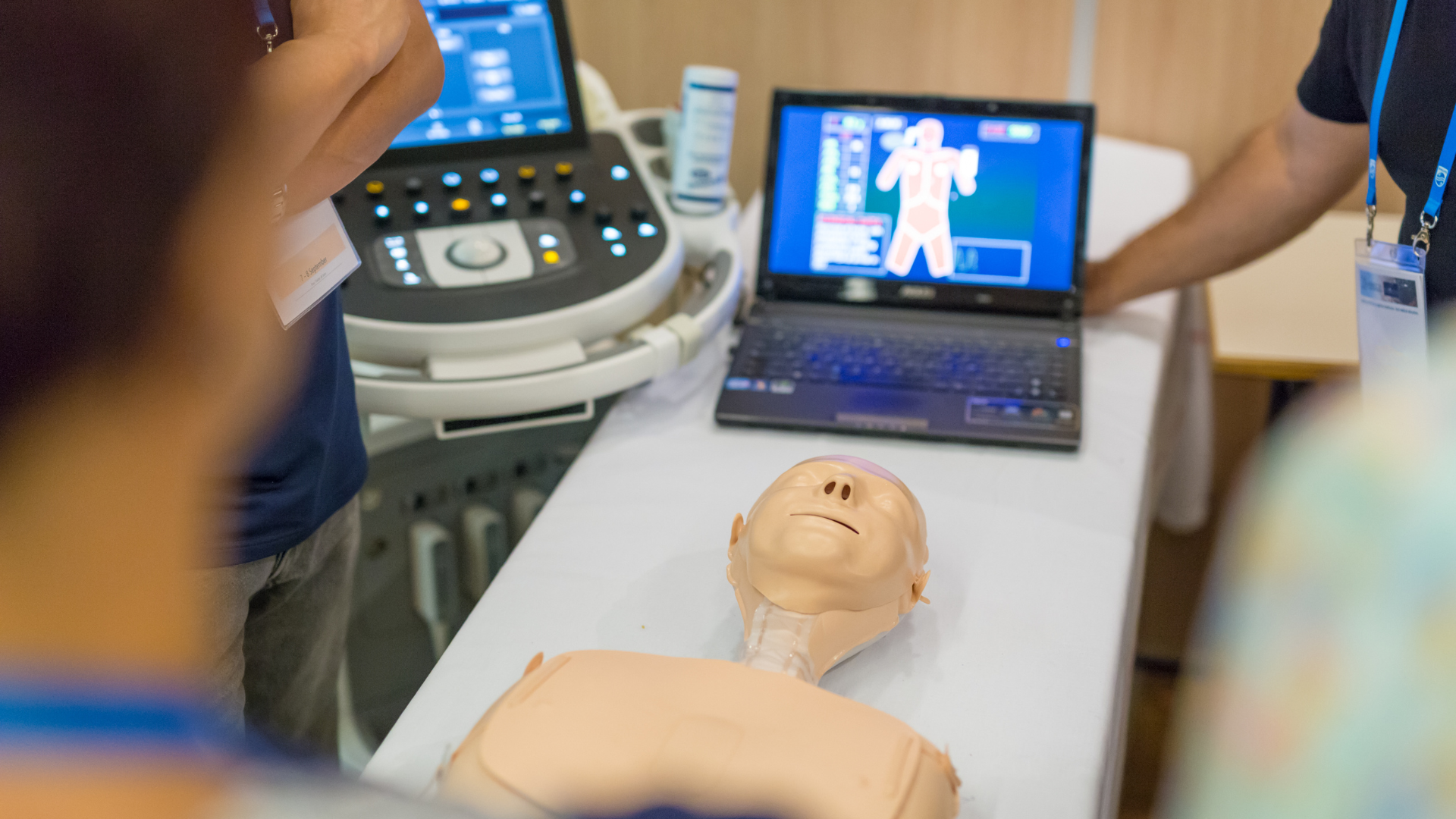Healthcare Management Careers in 2025: 29% Job Growth, ₹17L Salaries & Top Skills You Need
The healthcare industry is booming, creating a strong demand for skilled managers who can optimize operations and improve patient outcomes. This guide explores the scope of healthcare management, key skills, education pathways, certifications, and top job roles—plus expert tips to kickstart your career and grow in this rewarding field.
Introduction
The global healthcare market is projected to reach $665.37 billion by 2028, growing at a CAGR of 9.9%. This boom is fuelling demand for over 2.9 million new healthcare managers globally by 2030.
With the U.S. Bureau of Labor Statistics predicting a 29% rise in healthcare management roles between 2023–2033, now is the best time to step into this high-growth, recession-proof career.
Exhibit 1: Healthcare Sector Growth Trend (billions)
Healthcare management offers a unique opportunity to make a meaningful impact on patient outcomes without direct clinical involvement. With the U.S. Bureau of Labor Statistics projecting a 29% growth in medical and health services manager positions from 2023 to 2033, this field presents exceptional career prospects for ambitious professionals.
The COVID-19 pandemic has further highlighted the critical role of healthcare managers in crisis response, resource allocation, and system resilience, making this career path more relevant and essential than before.
A career in healthcare management offers job stability, attractive growth prospects, and the satisfaction of making a real impact on public health. Hospital management solves critical issues related to efficiency, resource allocation, and patient safety in healthcare delivery. According to the World Health Organization in 2022, inefficient hospital processes led to up to 40% of healthcare resources being wasted due to poor coordination, unnecessary procedures, and delays. Effective hospital management addresses these gaps by streamlining workflows, reducing patient wait times, and optimizing bed occupancy rates, key factors in improving both operational performance and patient satisfaction.
What is Healthcare Management?
Core Responsibilities
Healthcare management involves planning, directing, and coordinating medical and health services to ensure that healthcare facilities deliver safe, efficient, and high-quality care. Managers are responsible for budgeting and financial oversight, optimizing resource allocation to control costs without compromising patient outcomes. They oversee staff and departmental operations, ensuring that clinical and non-clinical teams work in alignment with organizational goals.
A critical part of the role is implementing policies and compliance measures in line with healthcare regulations, accreditation standards, and patient safety protocols. Healthcare managers also monitor performance metrics such as bed occupancy rates, patient wait times, and treatment outcomes, data that can drive process improvements. In a report, Oracle states that according to Kaiser Permanente well-managed hospitals can reduce operational processes by 30%.
Healthcare managers act as the bridge between medical teams, administrative staff, and external stakeholders, making decisions that directly influence patient experience, operational sustainability, and the long-term success of the organization.
Why Choose a Career in Healthcare Management?
Top 5 Reasons to Choose Healthcare Management in 2025 (With Numbers)
- Explosive Job Growth: 29% rise in healthcare manager jobs by 2033 (vs. 7% average for all roles).
- Attractive Salaries: Average annual pay in India is ₹13.4 lakh, with senior managers earning up to ₹17.3 lakh.
- Impact on Patients: Efficient hospital management can cut patient wait times by 40% and boost bed occupancy rates by 30% (WHO 2022).
- Tech Transformation: Global telemedicine adoption jumped 60% post-COVID, opening new leadership roles in digital health.
- Stable Industry: The Indian healthcare sector is projected to touch $638 billion by 2025, ensuring long-term career security.
Healthcare management encompasses the leadership, management, and administration of healthcare systems, hospitals, networks, and other provider organizations. Healthcare managers are responsible for planning, directing, and coordinating medical and health services across hospitals, clinics, managed care organizations, public health agencies, and other healthcare facilities. It blends leadership, operational planning, and strategic decision-making to improve the quality of healthcare delivery. As the industry grows, so does the need for skilled managers who can optimize resources and streamline operations.
The field of healthcare management offers a combination of stability, growth, and meaningful impact that few other industries can match. Job stability is a major advantage, healthcare is a non-cyclical, essential service, meaning demand remains steady regardless of economic conditions.
Exhibit 2: Why Choose Hospital & Healthcare Management?
Career Growth & Salary Expectations
According to the U.S. Bureau of Labor Statistics, employment for medical and health services managers is projected to grow by 28% between 2022 and 2032, faster than the average for all occupations. According to the IBEF, the Indian healthcare industry is expected to reach $638 billion by 2025, driving sustained demand for skilled management professionals.
High growth potential is another hallmark of the field. Career paths range from administrative coordinators and department heads to C-suite roles such as Chief Operations Officer (COO) or Chief Executive Officer (CEO) in hospital networks. With experience and specialization, such as in healthcare IT, quality management, or operations, professionals can significantly increase their earning potential. According to Salary.com, the average annual pay for a healthcare manager in India is about ₹13,43,568 a year, which translates to a monthly salary of about ₹1,11,964.
A healthcare manager's salary varies significantly based on experience level. According to a study, entry-level jobs earn ₹12,44,223 - ₹13,20,643, while intermediates make around ₹12,49,955 - ₹13,24,464, seniors earn ₹12,70,970 - ₹13,43,568, specialists earn ₹12,95,806 - ₹14,98,339, and experts can reach ₹13,30,195 - ₹17,30,494 or more, depending on the company and location.
Exhibit 3: Salaries of Hospital Managers by Experience in India
| Experience Level | Annual Salary (₹) | Growth Potential |
|---|---|---|
| Entry Level | 12.4 – 13.2 L | +8–10% per year |
| Intermediate | 12.5 – 13.2 L | Specialisation increases salary by 15% |
| Senior | 12.7 – 13.4 L | Can transition to COO/Director roles |
| Specialist | 12.9 – 14.9 L | Quality/IT specialists earn 20% higher pay |
| Expert/Leadership | 13.3 – 17.3 L+ | C-suite roles can cross ₹20L+ annually |
Source: salary.com
Scope and Relevance in Today’s Healthcare Ecosystem
The COVID-19 pandemic exposed the vulnerabilities of healthcare systems and underscored the vital role of skilled management. Healthcare managers coordinated emergency responses, optimizing ICU beds, oxygen supplies, and PPE, while implementing rapidly evolving public health policies. In India’s second wave, efficient bed allocation systems in cities such as Mumbai cut patient transfer times by over 40%, saving lives.
Going forward, healthcare management will be key to integrating technology such as telemedicine and AI-driven diagnostics (whose global adoption rose 60% during the pandemic), improving hospital efficiency through lean operations, ensuring regulatory compliance, and addressing public health challenges such as chronic diseases and future outbreaks.
In summary, the Future of Healthcare Management includes,
- AI Adoption: Expected to save $150B annually in US healthcare by 2026.
- Process Improvement: Lean hospital operations can reduce costs by 30%.
- Telehealth Market: Estimated to reach $455B globally by 2030.
- Digital Health Investment: Grew 79% year-on-year post-pandemic.




.png)


